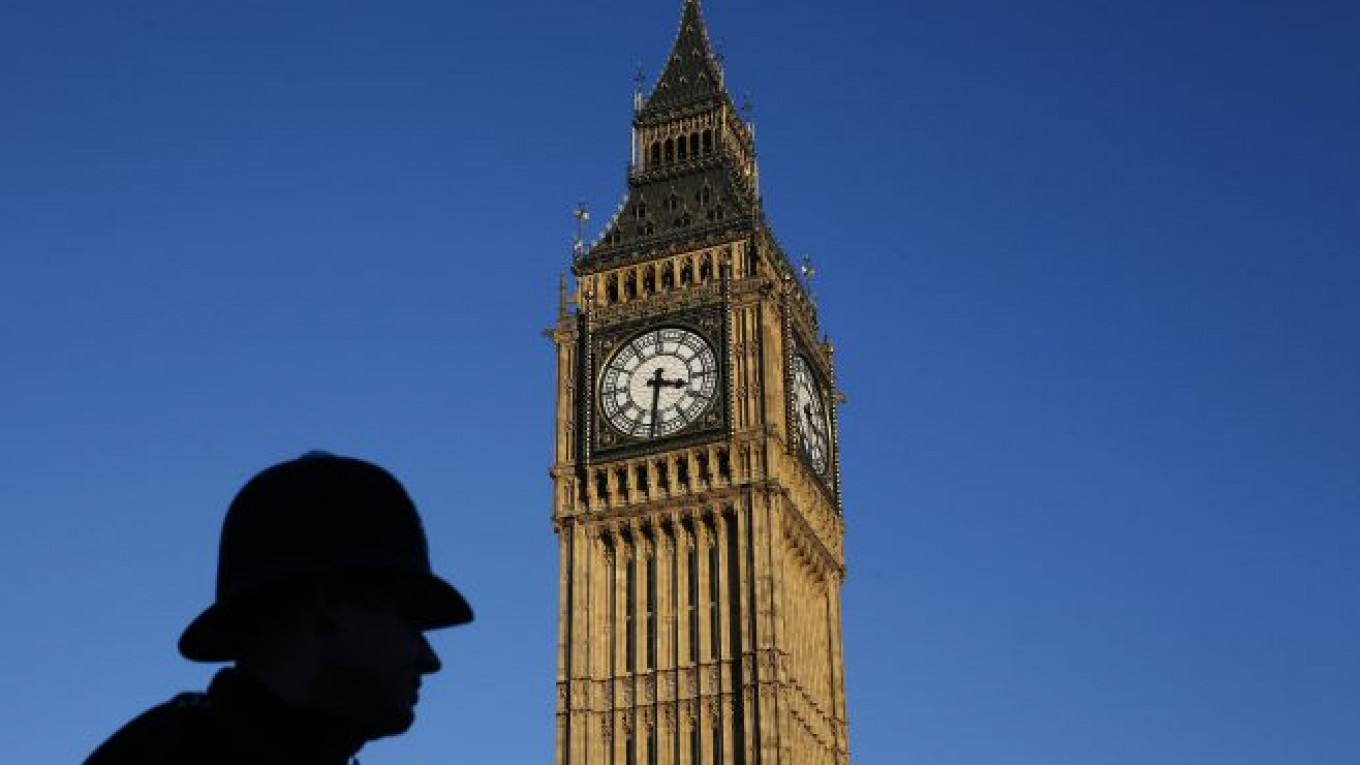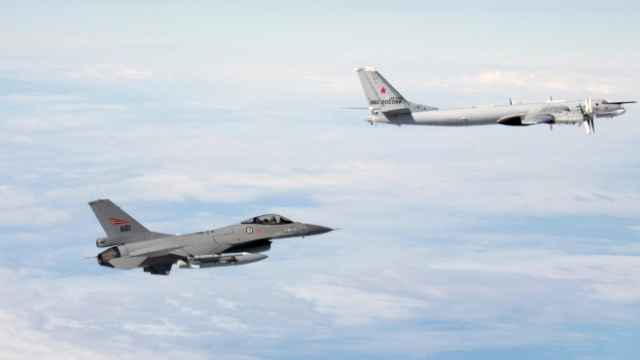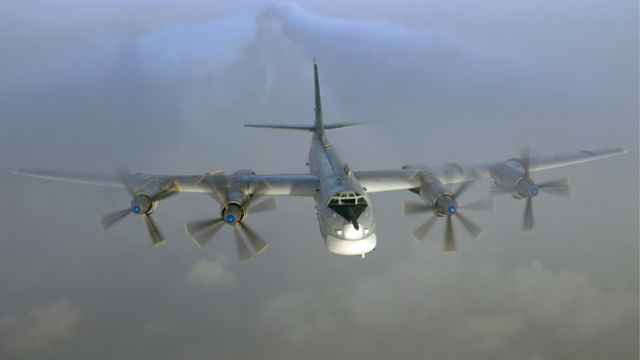Britain summoned the Russian ambassador on Thursday and asked him to explain why two Russian "Bear" long-range bombers had flown over the English Channel the previous day, forcing British authorities to reroute civil aircraft.
A British government source said the incident, which forced Britain to scramble Typhoon interceptor jets, was viewed as "a significant escalation" and marked a change in strategy since Russian aircraft had previously largely confined themselves to flying close to Scotland.
"It was very dangerous. Civil aircraft flying to Britain had to be rerouted," the source said. "The Russians were flying with their transponders turned off so could only be seen on military radar. They haven't flown this far south before."
The Foreign Office said it had summoned Russian Ambassador Alexander Yakovenko to account for the incident, saying the episode was part of an increasing pattern of "out of area operations" by Russian aircraft.
"The Russian planes caused disruption to civil aviation. That is why we summoned the Russian Ambassador today to account for the incident," it said in a statement.
Last year, NATO conducted more than 100 interceptions of Russian aircraft, about three times as many as in 2013, amid increased tensions between the West and Moscow over the Ukraine crisis.
British Foreign Secretary Philip Hammond said in December he was concerned by "the extremely aggressive" probing of Britain's airspace by Russian military aircraft after a spate of interceptions off the Scottish coast.
Hammond, a former defense minister, had previously said the sharp increase in such activity in recent years was because of a Kremlin military overhaul that had been overlooked by many.
The British government is generally unfazed by such flights, viewing them as symbolic shows of force by a resurgent Russia meant to remind the world that it remains a global power.
But the appearance of Russian bombers in the English Channel, a busy corridor for civil aircraft, raised concerns because of the risk of a collision.
In December, Swedish authorities said a Russian military jet nearly collided with a commercial passenger airplane in international airspace near southern Sweden. Russia insisted its jet had kept at a safe distance.
"It's scary. Who does this kind of thing?" the British government source said of the English Channel incident. "Only Russia."
A Message from The Moscow Times:
Dear readers,
We are facing unprecedented challenges. Russia's Prosecutor General's Office has designated The Moscow Times as an "undesirable" organization, criminalizing our work and putting our staff at risk of prosecution. This follows our earlier unjust labeling as a "foreign agent."
These actions are direct attempts to silence independent journalism in Russia. The authorities claim our work "discredits the decisions of the Russian leadership." We see things differently: we strive to provide accurate, unbiased reporting on Russia.
We, the journalists of The Moscow Times, refuse to be silenced. But to continue our work, we need your help.
Your support, no matter how small, makes a world of difference. If you can, please support us monthly starting from just $2. It's quick to set up, and every contribution makes a significant impact.
By supporting The Moscow Times, you're defending open, independent journalism in the face of repression. Thank you for standing with us.
Remind me later.






